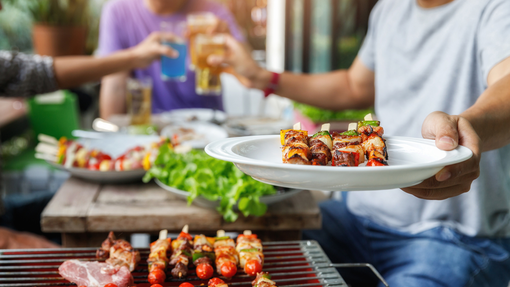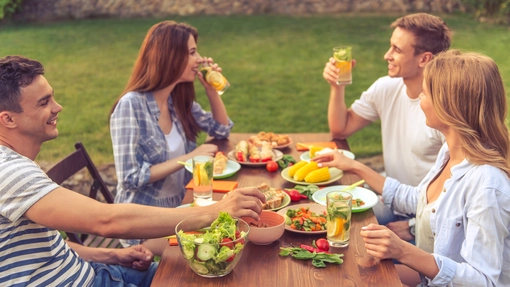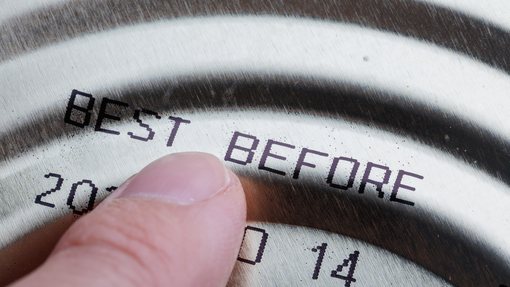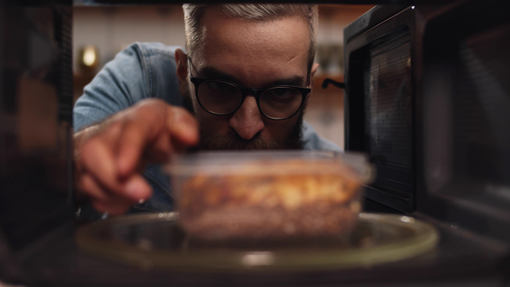
Date labels ditched: what this means for you
There has been some big news over on our social media pages: more and more retailers are joining the fight against food waste by removing ‘Best Before’ dates on much of their fresh produce! We’re talking fresh fruit and veg that hasn’t been prepared – so not things like the chopped-up fruit salad pots, carrot batons or salad bags you’d find in the chiller.
Most of our major supermarkets are making this important change to help stop good food from ending up in the bin. They’ve done this based on recommendations from our own research, so we’ve put together this blog post to answer your questions about this exciting news. Let’s start with the basics …
What’s the difference between a Best Before and Use By date?
Pre-prepared fruit and veg, such as the salad pots and carrot batons we mentioned earlier, have to have a Use By date, but uncut fresh produce doesn’t – and there’s no legal requirement for it to have a Best Before date either. That’s because Use By dates are about safety, while Best Before dates are about quality. You can’t eat food beyond the Use By date, but you can eat food beyond a Best Before date. For more information about date labels, take a look at our How do I? guide.
What does the research say?
Our ground-breaking research showed that removing Best Before dates increases the length of time people say they’ll still eat fresh produce. In other words, people work out for themselves whether something is still good to eat, rather than being influenced by the date label. Let’s have a quick look at each of our recommendations.
Ditch the date labels
Presented with a photo of a slightly tired-looking apple, 46% of people said they’d bin it if it had a date on it, compared with just 7% if there was no date. Indeed, when we looked at the effect of removing dates on five fresh produce items, we saw a significant decrease in household food waste for all of them – except bananas (which don’t usually have a date label anyway). Hence our recommendation to remove date labels from fresh, uncut fruit and veg to reduce food waste.
Sell loose
Off the back of this research, we’ve also recommended to retailers that they sell fresh produce loose, rather than pre-packaged, as this means people can buy only what they need. That makes it much more likely that they’ll actually be able to eat what they’ve bought before it goes off. This is particularly true for smaller households and people who live on their own, who are less likely than a big family to get through, say, a kilo of potatoes or carrots before they go off. The added bonus is that it also means less plastic packaging, which the research shows makes little or no difference to the shelf life of fresh produce!
Fresher in the fridge
Finally, we recommended that retailers do more to engage with customers on the best ways of storing food at home to make it last longer – in particular, highlighting the fact that most fresh fruit and veg (except bananas, onions and pineapples) stays fresher for longer if it’s kept in the fridge below 5°C. Apples, for example, showed the first signs of deterioration three days after the Best Before date when stored at room temperature, but that increased to a staggering 74 days when they were kept in the fridge. Bye bye, fruit bowl!
How much food could be saved?
Combined, these recommendations have huge potential. We estimate the average family in the UK throws away a whopping £730 worth of food a year, so the possible savings for you and your family are huge. But the ability to buy what you need – coupled with the removal of Best Before dates on uncut fresh produce – can also hugely reduce household food waste AND plastic. By our calculations, the measures we’ve recommended could prevent 100,000 tonnes of household food waste and around 10,300 tonnes of plastic.
But won’t this just increase food waste – fruit and veg will sit around for longer at the supermarket and we’ll have less time to use it at home?
The great thing about ditching the date label is that we can make up our own minds about whether fresh produce is still good to eat – or not. We already hunt out that ripe melon or avocado, so we know what to look for when making decisions about our fresh produce. We’ve shown that fresh produce lasts way beyond the Best Before date, and when it’s bought in the right quantity and stored properly – i.e. in the fridge, for most fruit and veg – there’s no need for it to end up in the bin.
How will the shops know which fresh produce is the freshest?
Fear not – shops will still use date coding for stock rotation! It’s only the labels you see as a customer that’ll be removed. They’ll still be using those yellow stickers for reduced items, too – so if you’re always on the hunt for a bargain, rest assured those aren’t going anywhere.
Will this mean less goes to charities and food banks?
On the contrary! It actually means they’ll get more than they did before, as some felt unable to take food that had gone beyond the Best Before date.
It’s safe to say that we’re delighted to see retailers heading in the right direction with date labelling and giving us all the chance to use our own judgement about what we’re happy to eat. Tackling both food waste and unnecessary plastic packaging at the same time also feels like a big win – let’s hope even more shops soon follow suit!






